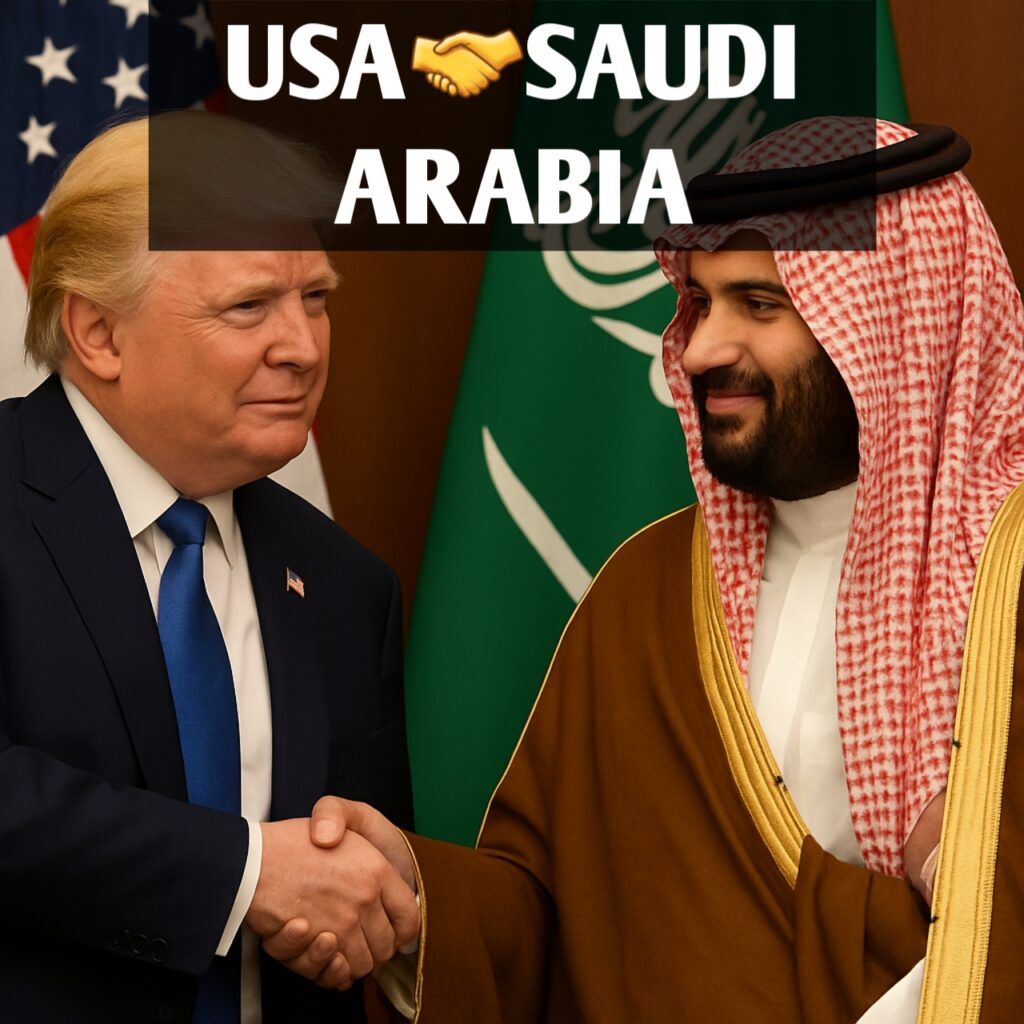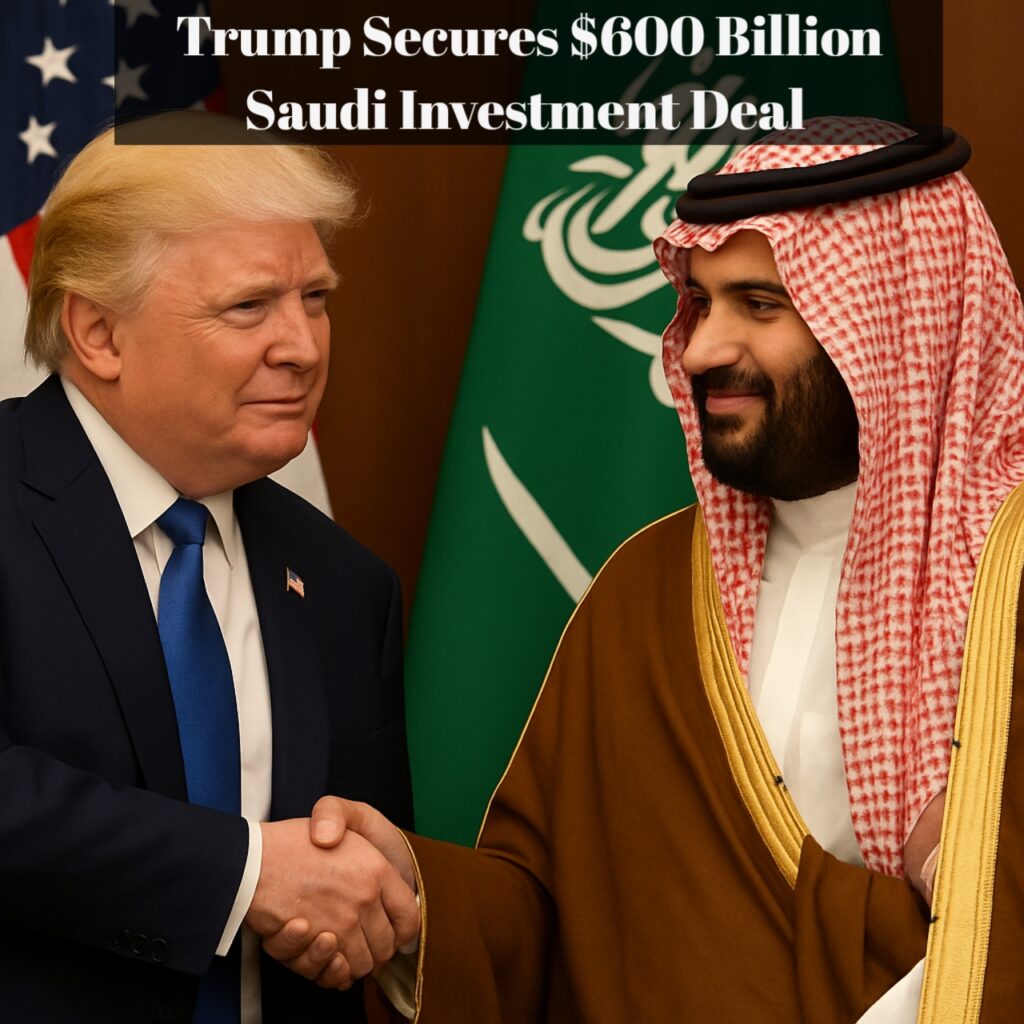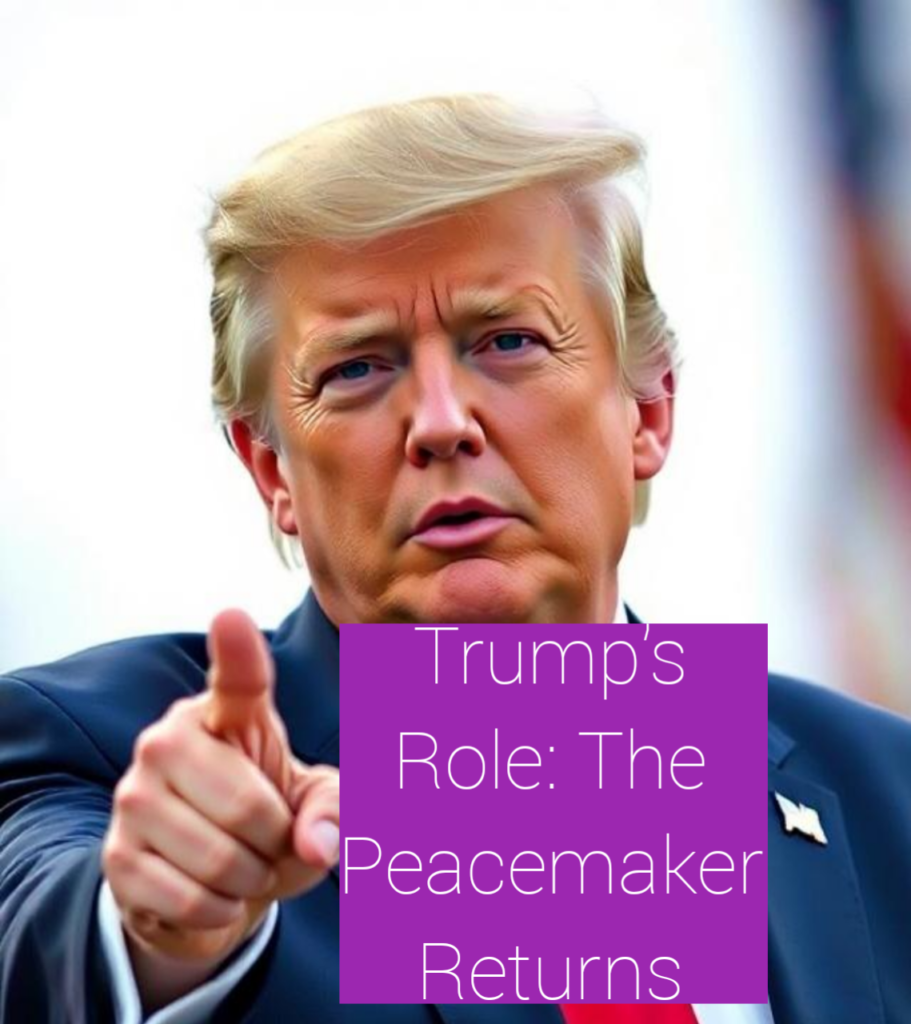President Donald Trump signs a $600 billion investment and $142 billion defense deal with Saudi Arabia, covering AI, energy, infrastructure, and more during his first post-re-election visit.

Introduction: A Powerful Beginning to Trump’s Second Term
President Donald Trump delivered a strong statement on his first official visit to Saudi Arabia since being re-elected.
Moreover, In a historic move, he obtained a $600 billion investment commitment from the Kingdom, the most extensive set of commercial agreements ever documented between the two countries.
The White House praised the agreement as “transformative,” Furthermore it will create jobs, enhance technology, and strengthen US-Saudi ties for generations.
Massive Investment Across Key Sectors
Biggest-Ever Commercial Deal Between U.S. and Saudi Arabia
The agreements span almost all of the main industries, including energy, artificial intelligence, infrastructure, defense, health care, and even sports, according to a White House information sheet. In addition The agreement demonstrates a solid collaboration focused on reciprocal development and worldwide leadership in innovative sectors.
AI and Energy at the Center of Economic Plans
DataVolt’s $20 Billion Push into U.S. AI and Energy
Meanwhile The Saudi company DataVolt’s $20 billion investment in the United States was one of the most striking announcements. By investing in AI data centers and renewable energy infrastructure. As a result , this funding will help America become a leader in sustainable energy and digital innovation.
Tech Giants Join the Transformation
In addition, Google, Oracle, AMD, Salesforce, Uber, and other top American and Saudi tech firms are investing $80 billion to develop technology that will help both nations. The goal of these collaborations is to increase innovation and global connectedness.
Infrastructure Boom Backed by U.S. Firms
$2 Billion in U.S. Services to Build Saudi Megaprojects
Meanwhile, Famous American engineering and project management firms like Hill International, Jacobs, Parsons, and AECOM will help build some of Saudi Arabia’s most ambitious infrastructure projects. This includes:
King Salman International Airport
King Salman Park
Qiddiya City – A major entertainment hub
The Vault – A futuristic development project
The total value of these U.S. services is estimated at $2 billion.
Exports and Manufacturing: A Two-Way Street
GE Vernova’s $14.2 Billion Gas Deal
Furthermore, GE Vernova will export gas turbines and energy solutions worth $14.2 billion to Saudi Arabia. These systems are expected to enhance Saudi Arabia’s energy production capacity.
Boeing’s $4.8 Billion Aircraft Deal
Similarly, U.S. aerospace giant Boeing will sell its 737-8 passenger aircraft to Saudi firm AviLease, in a deal valued at $4.8 billion. This agreement boosts the American aviation sector and deepens transport cooperation.

Healthcare Investment to Strengthen U.S. Supply Chains
$5.8 Billion IV Fluid Manufacturing Facility in Michigan
In addition, A Saudi-backed healthcare company called Shamekh IV Solutions, LLC plans to invest $5.8 billion in the United States. This includes constructing a high-capacity IV fluid production facility in Michigan, which will contribute to the strengthening and dependability of the US medical supply chain.
Three Major Sector Funds Launched
The deal includes three powerful sector-specific funds that will channel billions into important U.S. industries:
1. $5 Billion Energy Investment Fund – To develop new and clean energy sources
2. $5 Billion Aerospace and Defense Technology Fund – To support innovation in military systems
3. $4 Billion Enfield Global Sports Fund – To boost global sports cooperation and infrastructure
Together, these funds aim to create high-quality jobs, advance technology, and support long-term collaboration in crucial sectors.
The Defense Deal: $142 Billion for Security and Stability
Largest Defense Agreement in U.S. History
Notably, a huge $142 billion defense contract, the largest of its type between the United States and Saudi Arabia, was also revealed by the White House. Saudi Arabia now has access to cutting-edge American military services and technology thanks to the pact.
Five Key Defense Areas
The defense package covers:
1. Air Force Modernization – Including aircraft and space defense tech
2. Missile Defense Systems – To protect against aerial threats
3. Maritime and Coastal Security – Enhancing Saudi naval defense
4. Border and Ground Security – Including land force upgrades
5. Communication and Cyber Systems – To improve defense coordination
Trump Highlights U.S. Role in Stopping India-Pakistan War
During his address in Saudi Arabia, President Trump also made a bold claim—he said that the United States played a key role in stopping a war between India and Pakistan. His statement reflected his approach to global politics, where he balances diplomacy with strong defense.
“We talk about peace,” Trump said, “but we also make big defense deals. That’s how we ensure stability.”

The President added that the U.S. made significant efforts to prevent a full-scale conflict in South Asia, emphasizing, “America had a major role in stopping the India-Pakistan war.”
This comment highlights Trump’s strategic style: while he presents himself as a promoter of peace, he also strengthens America’s defense ties worldwide—demonstrating a calculated and assertive foreign policy.
Training and Support for Saudi Military
In addition to equipment, the U.S. will provide extensive training programs for Saudi forces. This includes support for:
Military academies
Medical services
Tactical and technical skills development
According to the White House, this shows America’s long-term commitment to building regional security based on trusted partnerships.
White House Reaction: A Game-Changer for Both Nations
A New Chapter in U.S.–Saudi Relations
The accords were hailed as a “cornerstone of strategic partnership” by the Biden Administration. These agreements were reached after four months of intense yet fast-paced negotiations, the fact sheet stressed.
Economic and Security Impact
In the words of the White House, the $600 billion total package will:
Create thousands of U.S. jobs
Boost exports and manufacturing
Strengthen America’s economic security
Support allies in maintaining peace and stability
Conclusion: A Bold, Strategic Move by Trump
Ultimately, President Trump’s visit to Saudi Arabia set a bold tone for his second term.
By signing historic commercial and defense agreements, he positioned the U.S. as a global leader in both economic innovation and military strength.
The visit also reinforced America’s alliances in the Middle East, signaling continued commitment to peace, prosperity, and strategic collaboration. Whether in AI, energy, defense, or sports, these deals will shape the future of U.S.–Saudi relations for years to come
